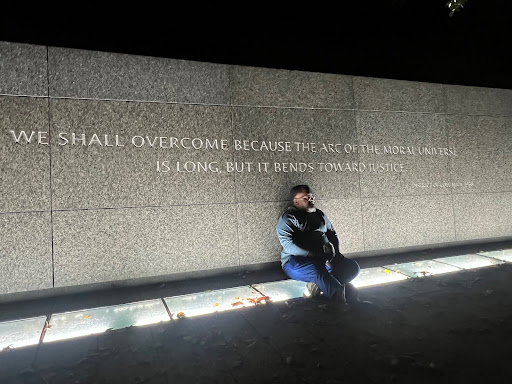No matter where you stand on a range of education issues, you will likely agree that the education debate in Denver over the past several years has featured too much mudslinging and too little substance. At Boardhawk, we want to steer clear of that and debate issues respectfully.
This strange Covid-19 era through which we’re all living provides us with an opportunity to reset, and to rethink in fundamental ways what a strong public education system in Denver should look like, and who gets a seat at the table while those conversations take place.
In the spirit of respectful debate, I want to highlight a recent post on the “Flip the Budget — DPS Community Board” Facebook group. A group member posted a suggested template other members could use to communicate with school board members as they begin tough deliberations over where to focus what are sure to be draconian budget cuts forced on the district by the Covid-19 crisis and looming state budget cuts.
It’s true that this could be an ideal time to fundamentally restructure Denver Public Schools and reduce administrative bloat. After all, why waste a crisis, etc., etc.? But it seems to me the writer’s template for how to do this would drive the district back into the previous century, and harm the very kids who most need a district that looks to the future of public education, rather than a past that, while romanticized by some, never served low-income kids or kids of color well.
I want to thank the author of this template, and I say that without any snark or sarcasm. It’s one of the best framings of the current debate over the future of Denver education I’ve seen. I disagree with many of her points and suggestions, and would hope that people who share her views and those whose views hew closer to mine can constructively discuss our differences, here, or in some hazy future, over coffee or beer.
Here’s the template, annotated with bold italics.
April 27, 2020
Dear DPS Board of Education Director (Tay Anderson, Jennifer Bacon, Scott Baldermann, Angela Cobian, Brad Laurvick, Barbara O’Brien, Carrie Olson) :
As 2020-2021 budget decisions are being made, let’s talk about the DPS’ bloated administration and the possible changes available to reduce the excess. As a concerned (community member, teacher, parent, student), I found the recent analysis of the budget adjustments made following the Denver Teacher strike, which Margaret Bobb so thoroughly detailed, to be extremely alarming. In the 2019 November election, the Denver Community rejected the slate of “reform” candidates for the Denver Public School Board of Education. Even if Superintendent Cordova and her administration fail to view that defeat as rejection of the “business model,” that has been thrust upon the Denver community over the past 15 years, the November election should have made it clear to the BOE directors that the Denver community voted for a change in direction. Instead, what I have seen is business as usual!
I have a list of demands that I believe will move us toward a return to a public school district that listens to the community and truly puts all of its students and educators as their #1 priority. These demands will also reduce the current “requirement” for a top-heavy administration, resulting in a leaner, more efficient district. They are as follows:
- Reduce the corporate influence in DPS administration. It is past time to value the professional educator and allow them to lead. A good place to start would be to adopt the Colorado Department of Education SPF framework, while at the same time working with DCTA to simplify LEAP. Public school students are not being well served with this business, top-down approach. It is time to get back to leading a collaborative District that serves all students. What do 18 instructional/regional “superintendents” even do? There are several different points made here, but let’s focus on one: the ‘flip the School Performance Framework’ movement. How does moving to the state SPF further educator autonomy? If anything the state SPF more heavily weights standardized test scores than does the district SPF. This seems like an inherently inequitable way to evaluate schools, compared to a more holistic view which DPS has tried, unevenly, to implement.
- Return oversight of ALL of Denver’s schools to the superintendent and the board of education. Put an end to the “freedom-to-claim-waivers” that charter and innovation schools abuse, while district run schools have strict rules to which they must comply. DPS can be a leader in rejecting these automatic and special waivers by reducing the district’s reliance on non-traditional options. Evidence of abuse, please? Also, how does a one-size-fits-all approach serve the kids who have historically been so poorly served by the education system? How does depriving kids from lower-income families of the choices middle class families have by birthright in anyway represent a progressive agenda?
- Focus on the educators: 1) Who should be in the classroom leading our students? 2) Teach for America corps members and Relay Graduate School “graduates” need to be strictly monitored for compliance to best practices with regard to what meets a loving-school community standard. 3) Hold charter and innovation schools to the same high standards for teacher certification as traditional school teachers. Note: On April 8, 2020, the Colorado Board of Education approved several STRIVE special-waiver requests that will allow the Green Valley Ranch middle school (with an SPF RED rating) to establish their own criteria for who qualifies as an educator. That is not okay in DPS. Traditional schools of education have not done a stellar job preparing teachers and school leaders. See recent articles on how schools of education have resisted brain science research about the most effective reading strategies.
- Reduce the emphasis on the choice/portfolio model. There is NO equity in this system. A two-tier system has evolved, one for the haves, one for the have nots. The board needs to focus on our neighborhood schools, making sure each and every one is well resourced and has qualified, certified personnel, to include principals, teachers, paraprofessionals, nurses, social workers, psychologists, and counselors. How well have neighborhood schools worked out over the decades for low-income kids of color? How does consigning those kids to schools with absolutely no choice of model or management structure serve them or families well? Do you believe that more funding alone will resolve most problems? Schools need better funding, without a doubt. What else would move the needle?
- How will the above demands reduce a bloated administration? Here’s the formula:
1) By reducing the corporate influence: cutting back on SPF, LEAP, LEAD, etc., saves money. The excess individuals employed in those departments can be deployed to schools and assist in strengthening the neighborhood schools. This sounds like an avoidance of any kind of meaningful school accountability. Testing has been excessive over the past 20 years. But that doesn’t mean all testing is bad. Without some limited standardized testing, how are we supposed to know how schools are serving students? And how would you propose that teachers be evaluated?
2) Every charter and innovation school needs to be evaluated for practicing “loving” whole child instruction. If draconian methods are being utilized, those schools should be brought in line with what whole-child means and change their practices or lose their approval to provide education services in the District. If she hasn’t done so recently, the author should visit a charter or innovation school to see what really is happening for the whole child in these schools. They’re not gulags.
3) Set a goal of reducing the complexity of the choice/portfolio model. Entire departments can be reduced, ie. Marketing, Schools of Choice, Portfolio Management, Communications, and other departments would become superfluous, as parents and students would choose their well-resourced neighborhood school. Begin by merging co-located schools, which will immediately reduce administrative costs. Charter operations are sucking funds out of traditional schools to support a duplication of services that can be provided through central administration. It is time to return oversight of all schools to DPS central administration. Doesn’t sound like anyone would be ‘choosing’ anything under this scenario. Everyone would be herded to their neighborhood school, because no other choices would remain. Fortunately, Colorado has a school choice law that makes this suggestion impossible to implement.
Thank you for your attention to my concerns. I look forward to seeing a move toward a less business-focused District and a move toward a student/teacher focused District. I don’t see a lot of student focus here, to be honest.




